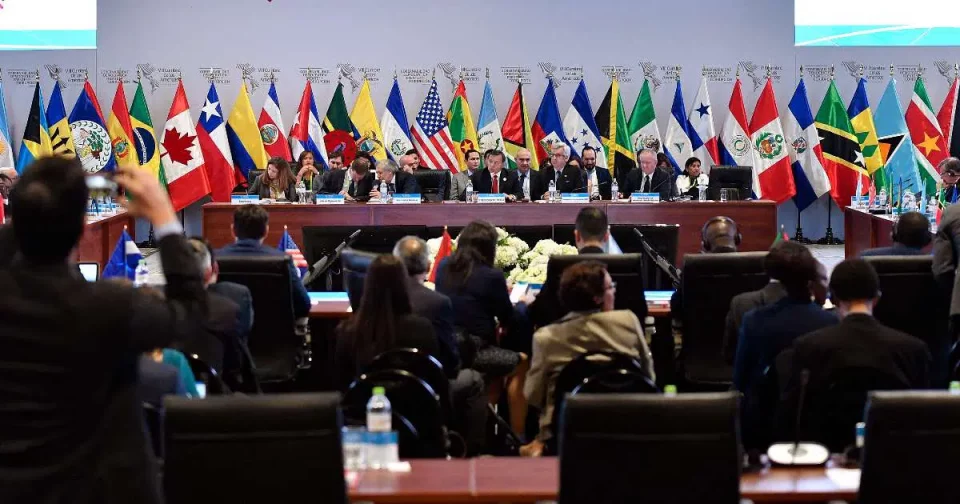
The Summit of the Americas organized by Joe Biden’s administration is scheduled for June 6-10 in Los Angeles, California. It will be the ninth meeting of the countries of the region and the first time that the United States will host the meeting since 1994.
However, with only a few weeks to go, the participation of some countries is still unknown, which has generated uncertainty around the ceremony and has put President Biden on alert, who is making several efforts to avoid the failure of the Summit.
Earlier this month, Mexican President Andres Manuel Lopez Obrador (AMLO) said that his country’s participation will not be confirmed until the U.S. invites all countries in the hemisphere, arguing that no country should be excluded from the summit. This, in clear protest for not being summoned Cuba, Nicaragua, and Venezuela, for not respecting the Inter-American Democratic Charter in 2001, was drafted at the request of the third Summit of the Americas in Quebec.
AMLO bets that the region will advance towards a “union” similar to the one that gave rise to the European Union, and to “leave behind other stages of history more symbolized by what has been the OAS and other assumptions of ‘America for the Americans'”.
His peers from Bolivia, Luis Arce; from Honduras, Xiomara Castro; and from Argentina, Alberto Fernandez; as well as leaders of the Caribbean Community (CARICOM), which gathers 14 countries, also questioned their participation. Chile did not condition its attendance, but asked that the invitation be “as broad as possible”.
For the same reason, the U.S. government has taken some measures, such as relaxing relations with Cuba and Venezuela. In this regard, it announced that it will reestablish regular and charter commercial flights to Cuba, which now only reached Havana; that it will suspend the limit of US$ 1,000 per quarter on remittances, and that the family reunification program will be reestablished, increasing consular services and visa processing for Cubans to reunite with their families in the United States through regular migration channels, thus backtracking on some of the toughest measures of his predecessor, Donald Trump. In Venezuela, Biden has eased some energy sanctions and will authorize U.S. oil company Chevron to enter into negotiations with Venezuelan state-owned PDVSA.
In addition, Biden chose as his emissary former Senator Christopher Dodd, one of his most trusted men, to try to convince the presidents of Mexico, López Obrador, and Brazil, Jair Bolsonaro, to participate in the meeting of leaders of the continent.
Dodd has already held a virtual meeting with AMLO and his foreign minister, assuring that he took note of everything discussed and that he will give an answer (about convening the excluded countries) in the next few hours. Mexico valued the instance.
For his part, Bolsonaro met with Dodd on May 24, requesting his presence at the regional meeting. And in exchange for this commitment, he offered him an exclusive bilateral meeting with Joe Biden.
If López Obrador and other leaders skip the meeting, it would be a snub to the Biden administration, which has emphasized relations with Latin America and has sought to strengthen ties as China makes inroads in the region.
Cuba participated in a Summit of the Americas for the first time in 2015 in Panama and was there again in 2018 in Lima. This time, it denounced that it was being left out of the preparations and that it would be a “serious historical setback” not to be invited.
Among the latest information, the US is evaluating how to incorporate Cuba, Nicaragua, and Venezuela.
The U.S. Secretary of State, Antony Blinken, invited his Spanish counterpart, José Manuel Albares, who will represent Spain at the meeting.
One of the main objectives of the Summit of the Americas is the elaboration of a joint declaration on migration, in the midst of the migratory crisis in the American continent; in addition to analyzing how to relaunch the economic recovery, after the serious impact caused by the pandemic.














